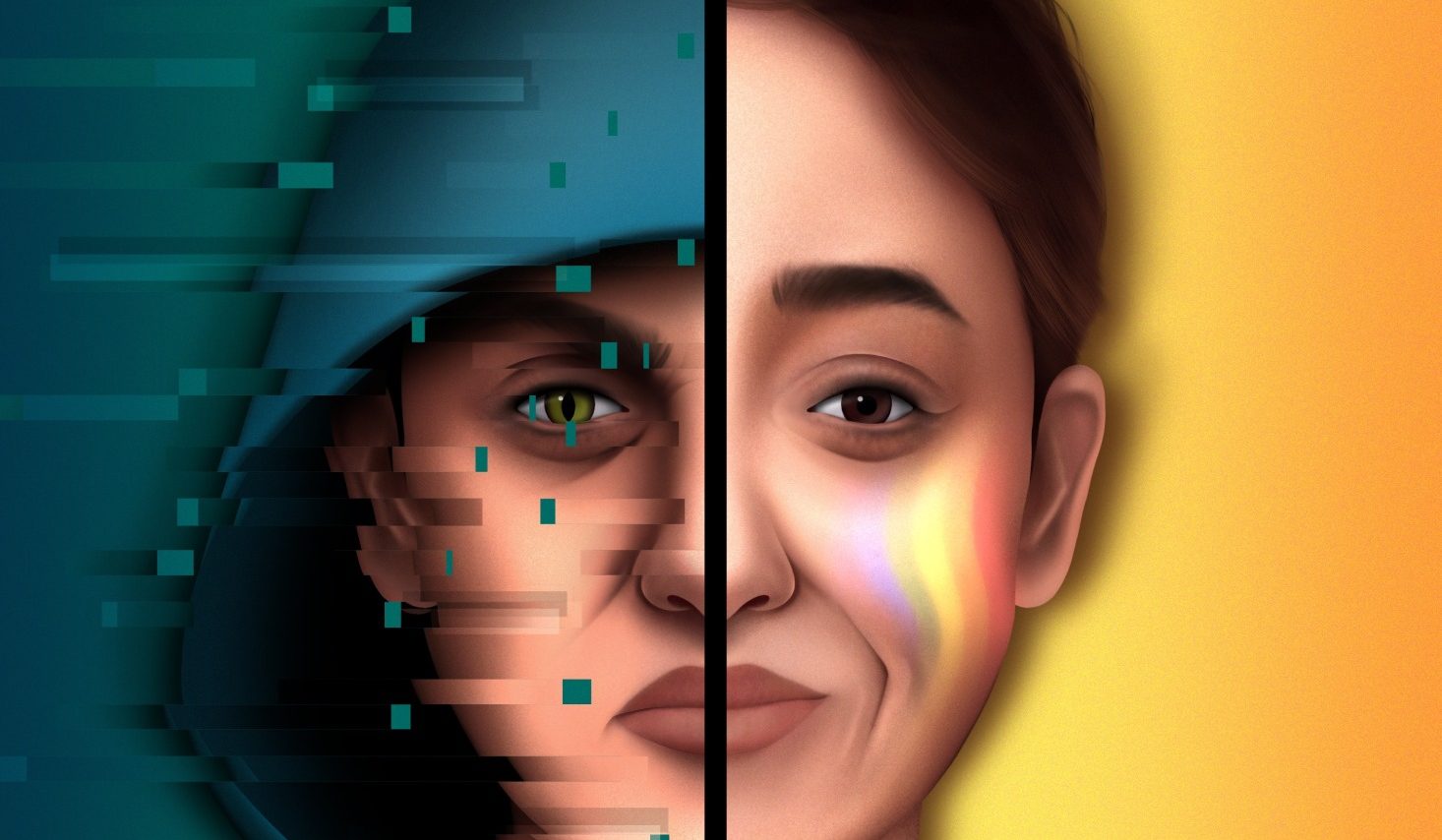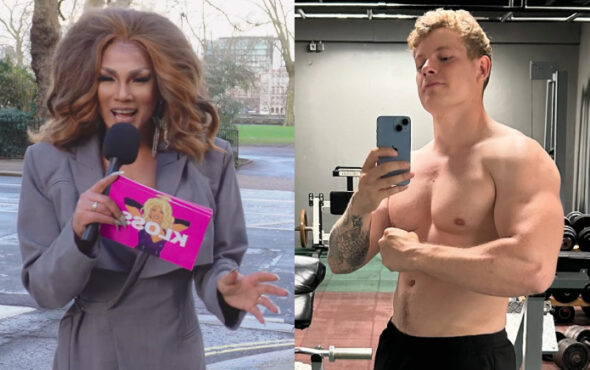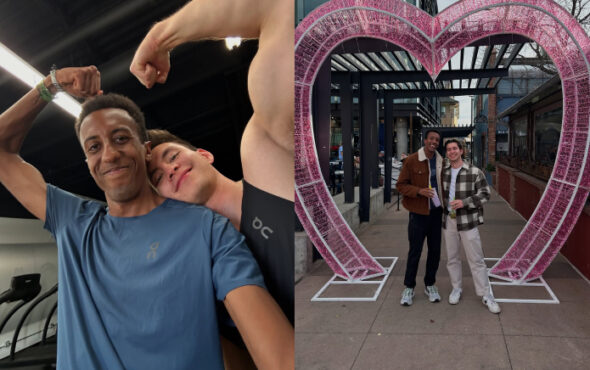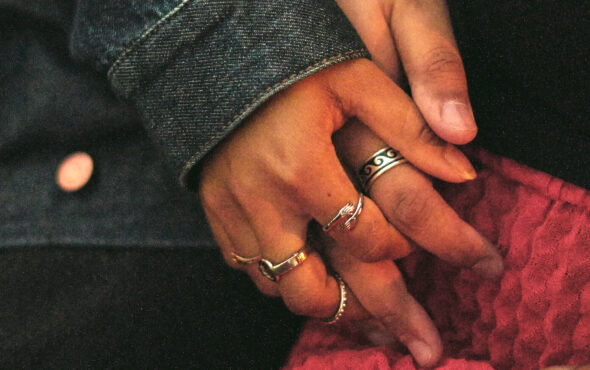A new report by IraQueer explores how the mainstream media in Iraq serves as hate speech, informing anti-LGBTQ+ sentiment in the country. The 14-page document recognises that the poor state of LGBTQ+ rights in Iraq is currently influenced by a number of factors, but biased media coverage of LGBTQ+ issues reinforces discrimination in wider society.
As is currently the case in most countries across the globe, religious and traditional values are the main drivers in opposing LGBTQ+ equality in Iraq. However, the way in which LGBTQ+ issues and people are reported on or discussed in mainstream media continues to cast LGBTQ+ individuals as “alien to Iraqi society, and that LGBTQ+ identities are ailments that must be treated and eradicated.”
For their report – titled Biased: The Role of Iraqi Media in Spreading Anti-LGBT+ Rhetoric – IraQueer searched the websites of more than 60 media outlets including newspapers, TV networks, and online platforms. They used keywords including ‘homosexuality’ (‘Al Methliya Al Jinsiya’) and ‘sexual abnormality’ (‘Al Shuthuth Al Jinsi’), which they identified as the most common terms used by mainstream media in Iraq when reporting on LGBTQ+ issues and people.
The search looked at coverage between 2012 and 31 May 2020, and analysed 208 pieces of media published during that period. IraQueer state that more than 92% of Iraqis consume news via television, with that medium being the dominant format in providing information to society. For this study, they’ve highlighted 22 TV programs and news segments, taking closer look at different aspects of their coverage of the LGBTQ+ community.

When it comes to online coverage, IraQueer found that the media in Iraq didn’t start covering LGBTQ+ stories until 2009. There were rare instances of coverage before that point, but they mainly centred around reactions from human rights organisations who were speaking out against killings of LGBTQ+ Iraqis. The limited coverage started to change in 2013 and 2014 when LGBTQ+ individuals and allies became more visible. In response to this, Iraqi media over past five years has become more influential in the way they shape views on LGBTQ+ people and issues.
It’s so effective that it even impacts the way LGBTQ+ Iraqis view themselves, with a previous IraQueer report in 2018 finding that 89% of LGBTQ+ respondents revealing that the media coverage in their country has negatively impacted the way they perceive their queer identities. IraQueer also highlight in their report that there has been a shift from news coverage on LGBTQ+ issues being translated articles from international sources, to more locally produced discussion that vilifies LGBTQ+ people.
The organisation found that “the overwhelming majority of the media coverage was biased against the LGBT+ community, encouraging people to reject such identities.” They add that more often than not the discussion concluded with calling for “the elimination of LGBTQ+ people from society” claiming it was in the interest of protected “innocent children and you who are easily influenced.”
Traditionally written media has been the primary source of LGBTQ+ coverage until recently. However, written article covering LGBTQ+ stories has risen dramatically in the past two years with the media reacting to the work IraQueer does to tackle LGBTQ+ discrimination in the country. Recent stories have also commented on international embassies in Baghdad raising rainbow-coloured Pride flags during June, and more recently blaming LGBTQ+ people for the spread of COVID-19.
The British embassy was one of the buildings in the Iraqi city of Erbil that adorned a Pride flag back in June 2017, which gained widespread media attention when Iraqi Parliament Member Habib Al-Tarafi stated, “If an embassy in my city raised this flag, I would have burnt the embassy.” These types of statements by Iraqi officials are frequent in the mainstream media. Al-Sumariyah News released a statement in 2018 by Muqtada Al-Sadr, the leader of the Sadr political party, formerly an armed militia responsible for LGBTQ+ murders between 2006 and 2012, which stated, “Homosexuals struggle with mental disorders and internal pressure that result in resorting to negative actions like wearing women’s clothes instead of men’s, and they are mentally ill.” The mainstream media in Iraq have no qualms using offensive and derogatory terms to describe LGBTQ+ individuals in their coverage, using slurs like ‘shemale’, ‘abnormal’ and ‘prostitution’.
On average LGBTQ+ speakers had 13% of the airtime compared to 87% for non-LGBTQ+ speakers.
When it comes to television coverage, it’s considered the most powerful medium to shape the views of Iraqi citizens. Only 48% of Iraqis use the internet compared to 92% of citizens who get their information from TV. For their report, IraQueer conducted analysis focusing on four different aspects in each of the 22 programs they looked at. They were overall program structure and design – including use of visuals and music – the hosts, guests and their qualifications, the terminology used, and finally the source of the information relied on by the speakers.
When it came to program structure and design, haunted-sounding music played whenever LGBTQ+ people or issues were mentioned, instilling a sense of horror around the subject for the viewer. When LGBTQ+ people were interviewed it was usually in abandoned warehouses or dark alleys to perpetuate the idea that they are outsiders to society.
As for the amount of time was spent speaking to actual LGBTQ+ people versus non-LGBTQ+ people on the topic, on average LGBTQ+ speakers had 13% of the airtime compared to 87% for non-LGBTQ+ speakers. As for hosts and so-called ‘expert’ guests, they usually started the news segment giving reasons why someone may identify as LGBTQ+, claiming “hormonal abnormality, birth defects, mental illness, families and lack of parental guidance, rape and sexual abuse, and disconnection from religion.”
‘Experts’ were found to describe LGBTQ+ people as “deviants” and not on a single occasion did they consider a queer identity to be “natural”. Overall they reject the idea that LGBTQ+ people could be part of the Iraqi identity. What’s more, some of these ‘experts’ even claimed that the number of LGBTQ+ people has increased since the invasion of Iraq in 2003, suggesting that queer people are victims of “foreign campaigns to promote homosexuality and destroy Iraqi society.”
It will come as little surprise that LGBTQ+ rights activist are routinely attacked by the media and are referred to as “more dangerous than terrorists”.
Even when neutral words – such as “gay” and “LGBTQ+ community” – were used it was in a mostly negative context.
During these televised discussions, the terminology used to speak about LGBTQ+ was overwhelmingly homophobic. IraQueer found that 95% of the terminology used was queer-phobic, while just 5% was neutral. There was no reference of positive terminology used during the media analysed. Offensive words – including “faggot,” “sinner,” “mentally ill,” and “outcast” – were used a total of 1574 times during the footage analysed. It meant that one of these terms was used every 30 seconds on average during the 22 programs used in the study.
Even when neutral words – such as “gay” and “LGBTQ+ community” – were used it was in a mostly negative context. This naturally has a negative impact on the mental health of LGBTQ+ Iraqis as well as making it harder to push the discourse around LGBTQ+ into a more positive space.
As for the source of information guests would cite during their arguments against LGBTQ+ identities, they were largely questionable. Speakers were seen to mislead audiences by using phrases such as “recent international studies state” in order to justify their opinion or incorrect assumption. One such example was by the nationally respected therapist Saeed Al Aathami who told Dijla TV in 2018 that the World Health Organization (WHO) categorises homosexuality as a mental disorder. WHO removed homosexuality from its International Classification of Diseases in 1992, meaning his statement was inaccurate and out of date by 26 years at the time he made on television.
Another piece of misinformation included stating that same-sex marriages were found to be temporary in comparison to the more permanent heterosexual religious unions. This blatant misleading of the television audience regarding LGBTQ+ issues only serves to promote the rejection of queer people and identities. In turn this incites anti-LGBTQ+ feeling that can result in violence. What’s more worrying is that this information is rarely challenged by the host and is left as a statement of fact. Rarely were there LGBTQ+ guests to offer the correct view, and when there was they were typically people from disadvantaged background that lacked the educational skills, financial stability and political and social protection to effectively speak out.
Despite the biased nature of Iraqi media when it comes to LGBTQ+ issues, IraQueer have highlighted some glimmers of hope in their report. To start, the increase in conversation around LGBTQ+ stories is a positive sign that LGBTQ+ are slowly being recognised. What’s more, the Arabic word “Mujtamaa Al-Meem” – which translates to the LGBTQ+ community – has been notably higher than when it was first used in 2017 by IraQueer during an interview with Al-Sharqiya TV.
There are also strides by Al-Sharqiya to providing more balanced coverage, clocking in the largest amount of speaking time for LGBTQ+ people. But there’s still someway to go for them to meet the professional standards of journalism. IraQueer recognises that Iraqi media isn’t the cause of the oppression of LGBTQ+ Iraqis, with the education system, religion and political instability being more prominent factors. However, the media could be doing much more to prevent perpetuating untruths around LGBTQ+ issues and people to protect them from heightened levels of discrimination, rejection and violence. They continue to platform political and military officials who use anti-LGBTQ+ rhetoric and promote organisations who have a history of abusing and killing LGBTQ+ people.
“When LGBTQ+ individuals feel disempowered and unsupported, LGBTQ+ civic organising and the equality movement will suffer too, as it will be unlikely for individuals to join when their lives could be at stake,” the report states. “Information shared by the media can limit and shape the behaviour of individuals who are central to wider social change.”
IraQueer conclude their report with five things that Iraqi journalists can do to improve their reporting on LGBTQ+ issues, including using respectful terminology, adhering to professional standards of journalism, avoid the use of leading questions, inviting qualified and balanced experts to comment, and dedicating more time of the discussion to LGBTQ+ people who can best speak about their identities and experiences.
You can read IraQueer’s report in full, here.


